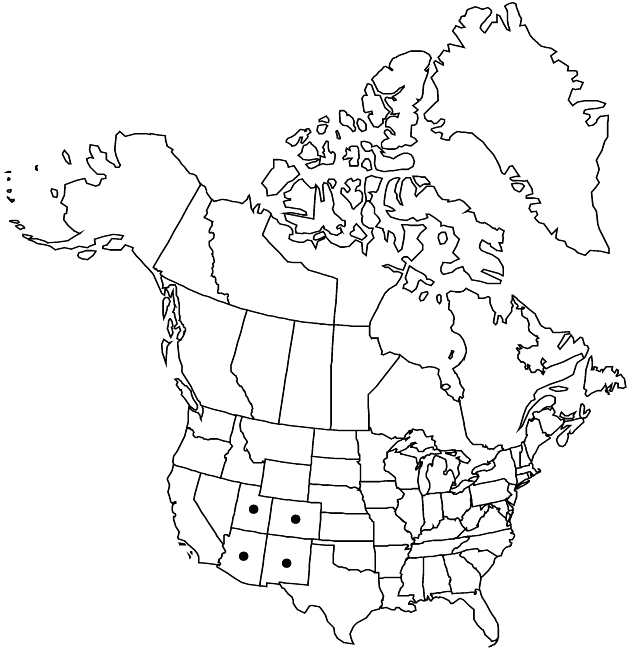Wyethia arizonica
Proc. Amer. Acad. Arts 8: 655. 1873.
Plants 20–30(–100) cm. Basal leaves: blades elliptic or lance-elliptic to lanceolate, 12–30 cm, margins entire, not ciliate, faces usually ± hirsutulous or scabrellous, sometimes glabrate; cauline leaves mostly smaller, narrower, distal-most usually petiolate, rarely sessile and clasping. Heads borne singly or 2–4+ in ± corymbiform arrays. Involucres turbinate to hemispheric, 18–25+ mm diam. Phyllaries 16–34, subequal, ± herbaceous, margins ciliate, faces glabrous or strigillose to hispidulous; outer 18–22(–30) mm (not or seldom surpassing discs). Ray florets 11–12; laminae (25–)35–50 mm (abaxially hirsutulous). Cypselae 9–10 mm, glabrous. 2n = 38.
Phenology: Flowering Apr–Jun.
Habitat: Meadows, openings in pine, oak, or spruce-fir forests
Elevation: 600–2200(–3000) m
Distribution

Ariz., Colo., N.Mex., Utah.
Discussion
At the northern margin of the range, glabrate plants with the general habit of Wyethia arizonica (introgressants with W. amplexicaulis) exhibit greater frost-hardiness (a characteristic of W. amplexicaulis) than do other members of the species.
Selected References
None.